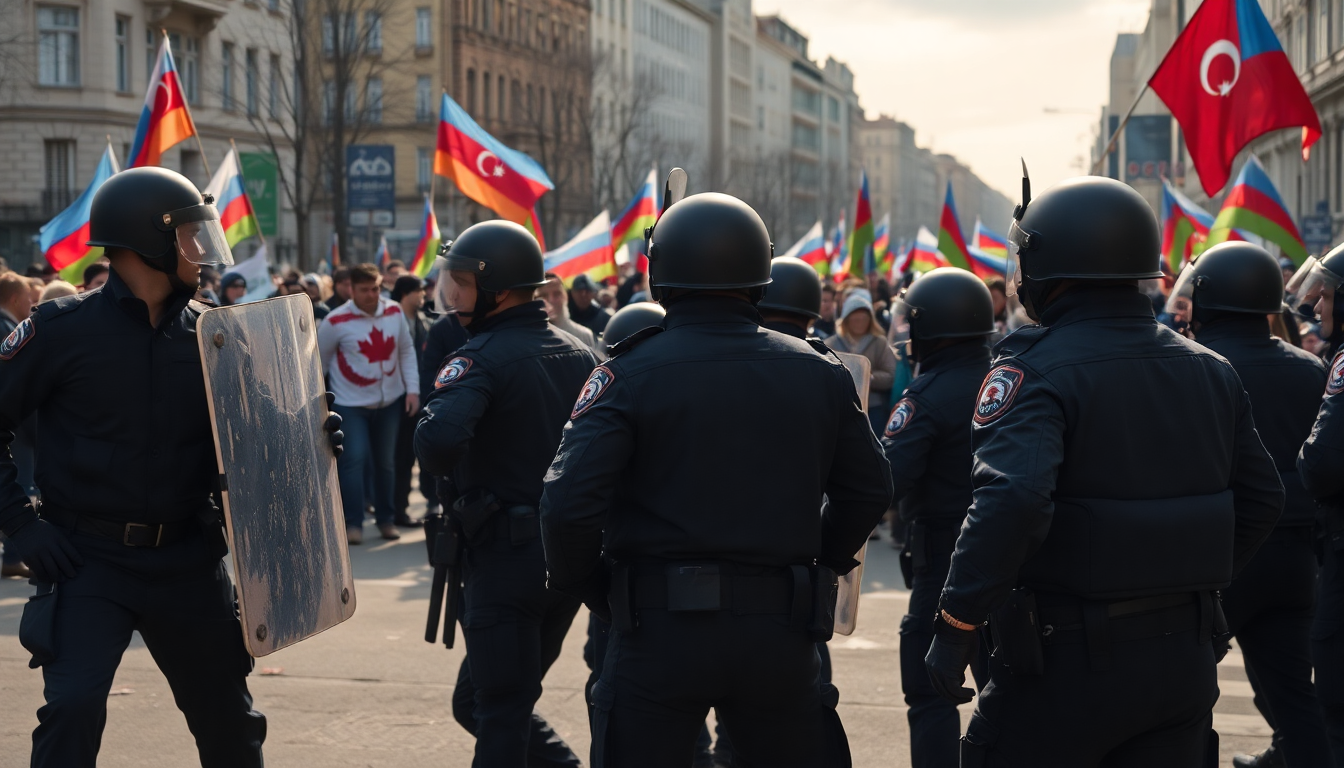Table of Contents
Recent events have put a serious strain on the relationship between Russia and Azerbaijan, especially after violent arrests in Yekaterinburg. These incidents have sparked civil unrest and raised alarming concerns about the treatment of ethnic Azerbaijanis in Russia. Reports indicate that several detainees faced brutality during their arrest, and tragically, some even lost their lives. So, what do these events mean for diplomatic relations between the two countries? Let’s dive into the implications of these incidents, the reactions from both governments, and the broader backdrop of their long-standing partnership.
Understanding the Arrests and Allegations of Violence
The tumult began as Russian authorities launched an investigation into a murder case dating back to 2001, linked to organized crime involving ethnic Azerbaijanis. During a raid, security forces detained numerous individuals, but local media reports suggest the operation was anything but smooth. Allegations of excessive force and severe beatings have raised serious questions about the methods being used by law enforcement. Can we really turn a blind eye to such treatment?
Peter Michalko, the European Union Ambassador to Azerbaijan, voiced his deep concerns over the violence and mistreatment reported, highlighting the gravity of the situation. His remarks reflect a wider unease about the treatment of ethnic minorities in Russia and the potential fallout on international relations. In response, the Azerbaijani government has taken a stand by canceling cultural events with Russia, clearly signaling their disapproval of the situation and their commitment to defending what they see as injustices.
Government Responses and Diplomatic Fallout
In light of the arrests, the Azerbaijani government has ramped up its response. They conducted raids on Russian media outlets operating in Azerbaijan, leading to the arrest of two officers from Russia’s Federal Security Service. This decisive action highlights the rising tensions between the two nations and Azerbaijan’s determination to assert its sovereignty and protect its citizens. Isn’t it fascinating how quickly diplomatic relations can shift?
Meanwhile, the Russian Investigative Committee has admitted that two detainees died during the arrests—one due to heart failure, while the cause of the other remains unknown. This admission has only intensified scrutiny over Russian security practices and their treatment of ethnic minorities. The Kremlin has condemned Azerbaijan’s retaliatory actions, insisting that such measures shouldn’t derail the diplomatic ties between these allied nations.
What This Means for Russia-Azerbaijan Relations
The historical context of Russia and Azerbaijan’s relationship adds another layer of complexity to this crisis. Since the fall of the Soviet Union, these two countries have generally maintained friendly ties, with Russia being a major arms supplier to Azerbaijan. However, these recent events threaten to destabilize that partnership. As Azerbaijan takes a firmer stance against what it views as aggression from Russian authorities, the potential for a diplomatic rift grows.
Additionally, the international community is keeping a close eye on how this situation unfolds. The responses from the EU and other global players will likely shape the future of these tensions. As discussions about human rights and state sovereignty gain traction, the incidents in Yekaterinburg could spark a larger conversation about the treatment of ethnic minorities within Russia and its foreign relations.
In summary, the violent arrests in Yekaterinburg have ignited a significant diplomatic crisis between Russia and Azerbaijan. Both countries are taking steps that could redefine their relationship. As this situation evolves, the international community will be watching closely, hoping for a resolution that prioritizes human rights and encourages diplomatic dialogue. What do you think will happen next?


